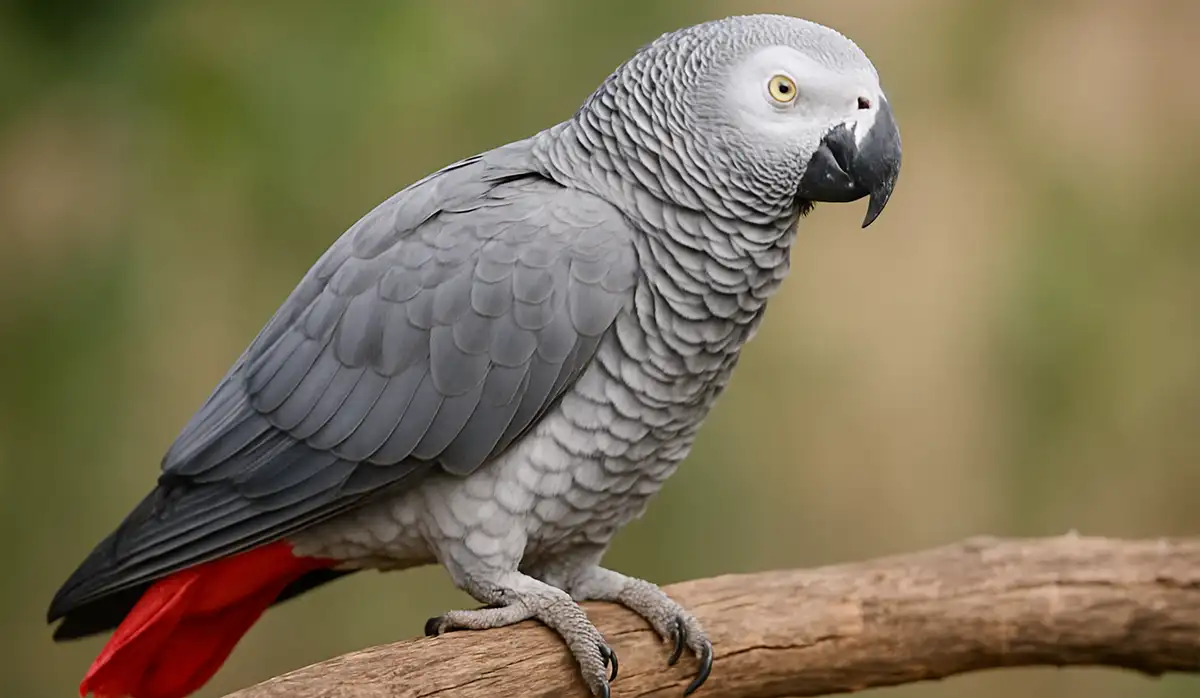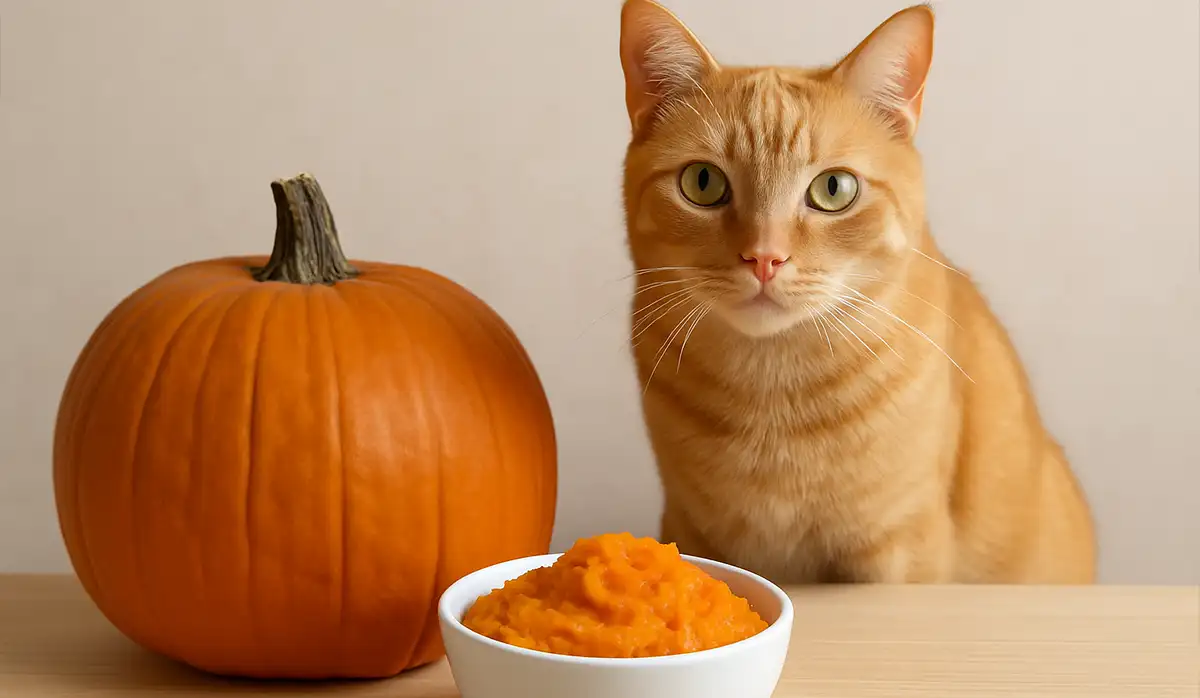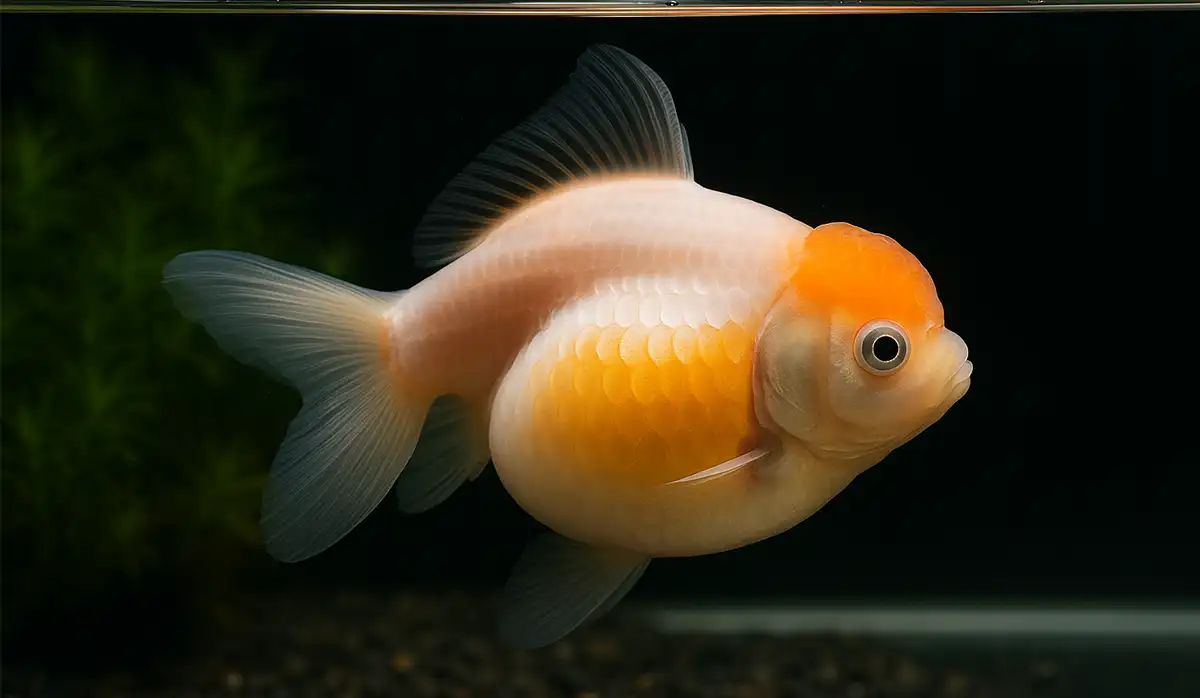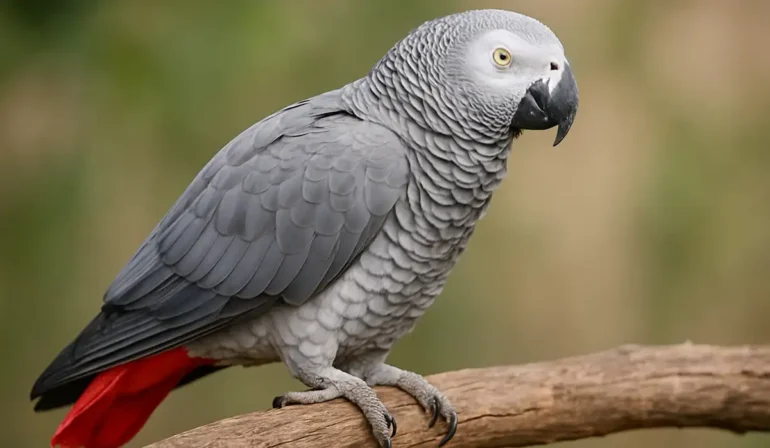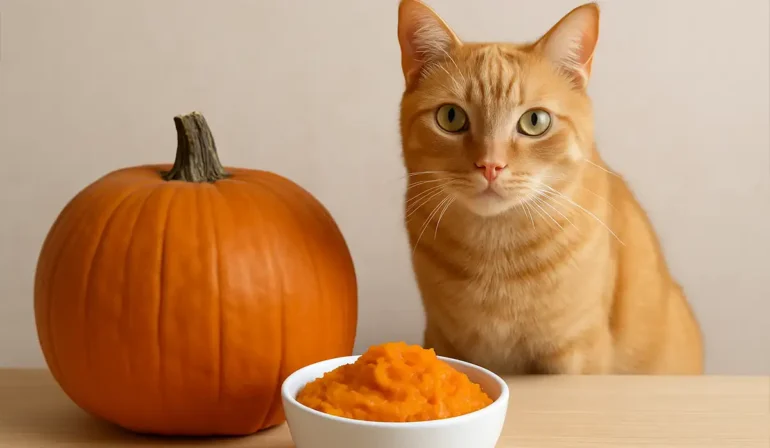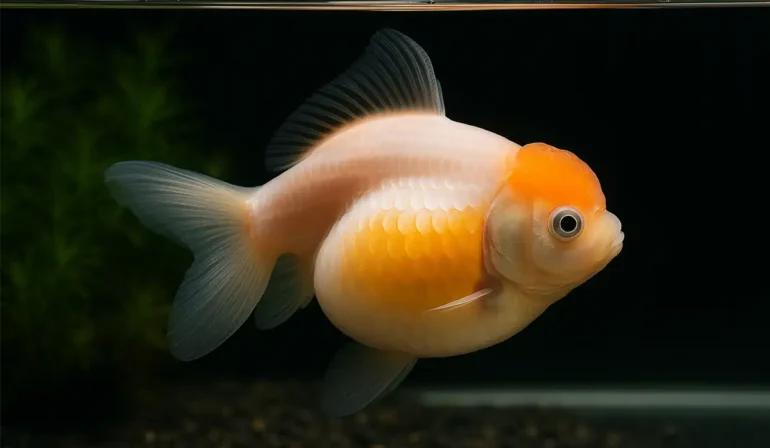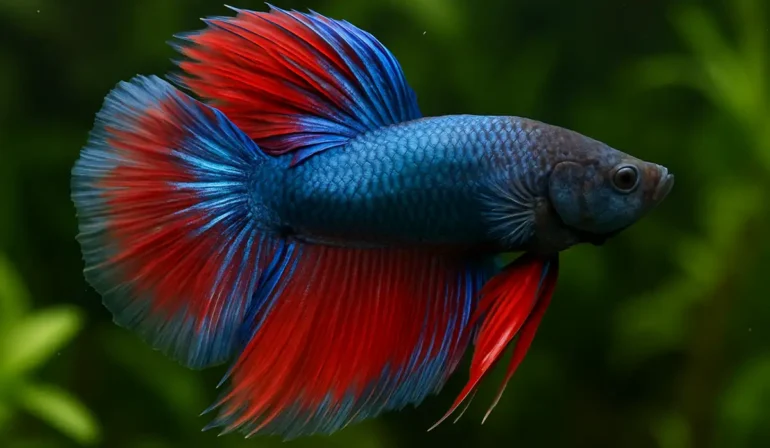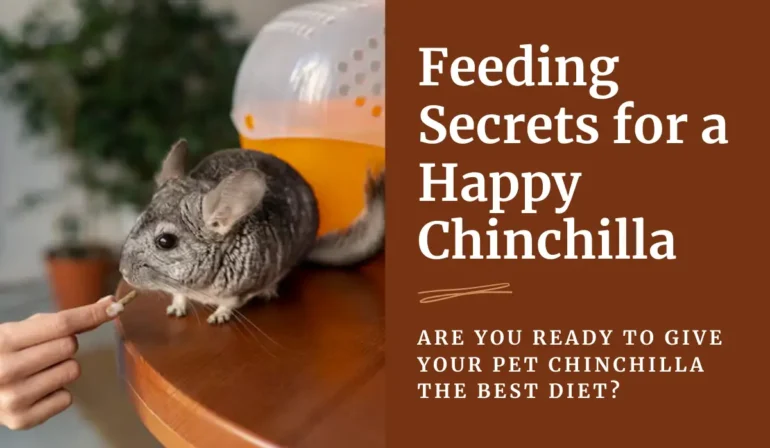Can Cats Eat Cheese? Discover What Veterinarians Really Think!
By Pet Luvz on January 11, 2025

Do you ever catch your feline buddy eyeing the cheese plate as if he can’t get enough of it? 🧀😺 Cat owners are usually curious about the safety of giving their favorite treats to their feline friends. Can cats eat cheese? The question has plagued pet parents for years, and the answer may surprise you!
Cats are famous for their love of creamy and rich stuff, but the relationship between felines and dairy is more complex than one would imagine. Many veterinarians have extreme opinions on this topic. Potential digestive issues aside, there are also some surprising health benefits. It’s all quite interesting, as far as cats and cheese are concerned. Worry not – we’re here to solve the mystery and offer expert insight into guiding you toward making the right choice for your furry friend.
In this blog post, we’re going to dig into the truth about (Can Cats Eat Cheese) cats and cheese, what the veterinarians really think about this matter, and try to get to the bottom of the way various cheese types affect our cute felines. We’ll also assist you in checking the signs of cheese intolerance and recommend some other purr-fectly healthy alternatives to tasty treats. So, sit down and get ready to discover everything you need to know about this cheesy dilemma!
The Truth About Cats and Cheese
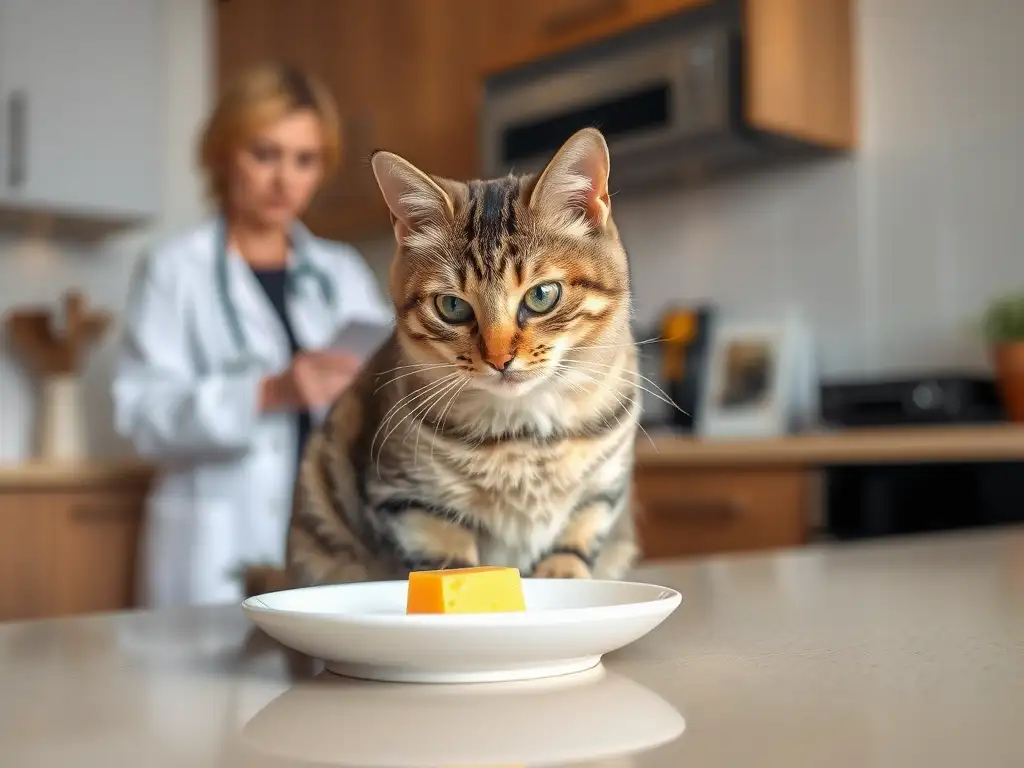
Cheese nutritional composition
Cheese is a dairy product made up of protein and fat (Can Cats Eat Cheese) among other nutrients. However, the cheese contains a sugar known as lactose found in milk. The level of lactose can vary from one type of cheese to another as well as how long it was aged.
Feline digestive system basics
Cats are obligate carnivores and have a diet of meat-protein-based substances in their gastrointestinal systems. During their kitten days, cats carry the enzyme lactase, an enzyme that permits them to drink milk from their mothers. Upon growing up, many cats eventually lose the capability to produce significant amounts of this enzyme. Because of this decrease in lactase production, the majority of mature cats are lactose intolerant.
Potential health risks for cats
Feeding cheese to cats can cause a number of health problems, primarily because of lactose intolerance. The undigested lactose from such dairy products as cheese may ferment in the cat’s intestines and lead to gastrointestinal distress. Lactose intolerance in cats can present with these symptoms:
- Excessive gas
- Abdominal pain
- Bloating
- Vomiting
- Diarrhea
- Increased thirst
However, the severity varies with the given genetic (Can Cats Eat Cheese) makeup in the individual cats and the extent of lactase enzyme in a feline’s body. Sometimes frequent intake of milk products like cheese may cause the gastrointestinal tract’s continual state of inflammation with more severe results.
However, it is worth noting that what is luring certain cats to cheese is its high fat and protein content. This doesn’t ensure that it will be safe for them to eat. The dangers of cheese can often outweigh its benefits when fed to cats.
Having established the truth about cats (Can Cats Eat Cheese) and cheese, covering nutritional composition, feline digestive basics, and health risks, we will then go ahead and look at what veterinarians have to say regarding the issue. The following section discusses veterinary opinion on this subject for a better insight into whether or not cats should be fed cheese.
Veterinary Opinions on Cats Eating Cheese
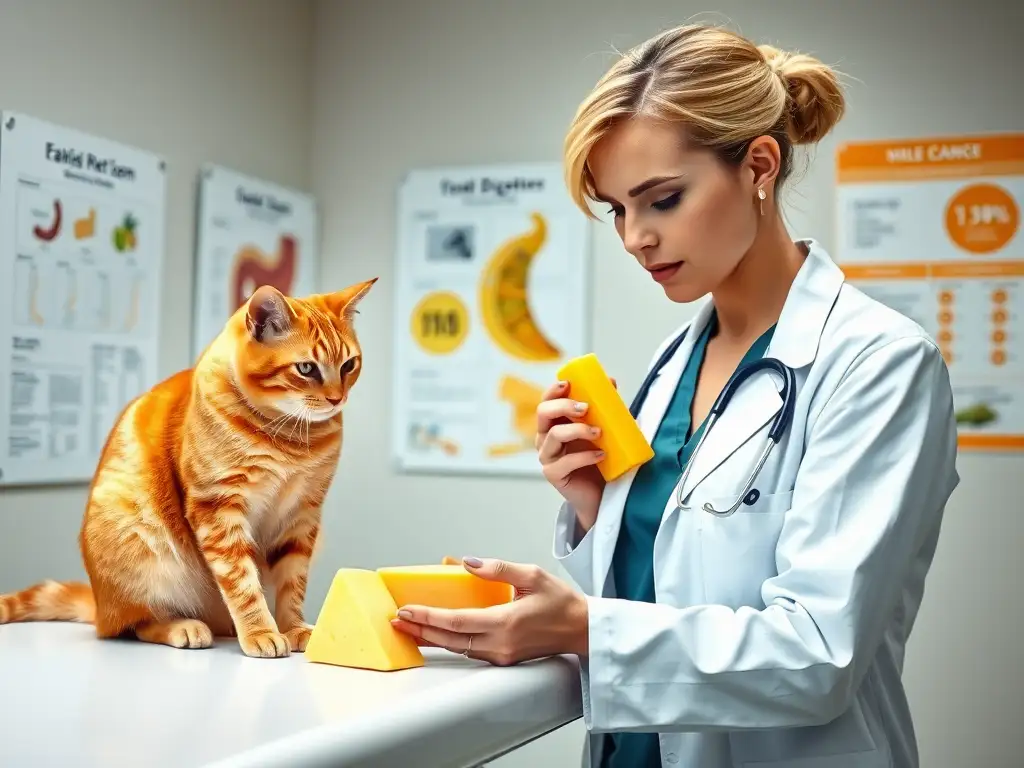
Having discussed the truth about cats and cheese, now it’s time to find out what veterinarians really think about this.
A. Consensus among veterinarians
Veterinary experts generally agree that cats (Can Cats Eat Cheese) can occasionally eat cheese but it should be given in moderation. The consensus is that cheese should be treated as a special treat rather than as part of the regular diet for cats. Most veterinarians recommend that cheese be given only in small amounts, the size of a die or a dime, and mainly for medication purposes.
B. Factors influencing professional advice
A variety of factors will impact veterinarians to advise cat owners on cheese for their cats as follows:
- Cats are largely lactose intolerant. Many cats experience discomfort and diarrhea in response to their inability to metabolize lactose.
- Dairy allergy: Certain cats will exhibit allergic responses to dairy.
- High-calorie density: Cheese is highly calorically dense. Cats gain weight from excess caloric intake.
- Nutritional content: Cats require specific nutrition. Cheese lacks the necessary components.
- Underlying health issues: Some cats need to completely abstain from cheese based on specific health issues.
C. Case studies and research findings
A study from the Cornell University College (Can Cats Eat Cheese) of Veterinary Medicine states that most cats cannot digest dairy well. This contradicts the general notion that cats like and tolerate milk very well. Research studies have indicated that cheese ingestion in cats causes gastrointestinal problems, such as diarrhea, vomiting, and abdominal pain, in lactose-intolerant or dairy-allergic cats.
Case studies have also shown that cats with certain health issues, like those on a low-sodium diet or with heart conditions, should not be given cheese at all. In addition, studies have shown that treats, including cheese, should only make up 8 to 10 percent of a cat’s daily caloric intake to stay healthy.
D. Recommended alternatives to cheese
Considering the risks of giving cheese to cats, veterinarians generally recommend healthier options for treats. Some of these include:
- Cooked chicken or fish pieces
- Commercial cat treats made according to feline nutritional requirements
- Small amounts of plain cooked meats without added seasonings or preservatives
Veterinarians always remind people to see a professional first before introducing a new treat to a cat’s diet, such as cheese. In this way, any dietary changes or additions are not detrimental to the cat’s health and overall well-being.
Knowing this about what veterinarians have to say on the (Can Cats Eat Cheese) matter of cats eating cheese, let us proceed to explore the different kinds of cheese and their particular impact on our cats in the following section.
Types of Cheese and Their Effects on Cats
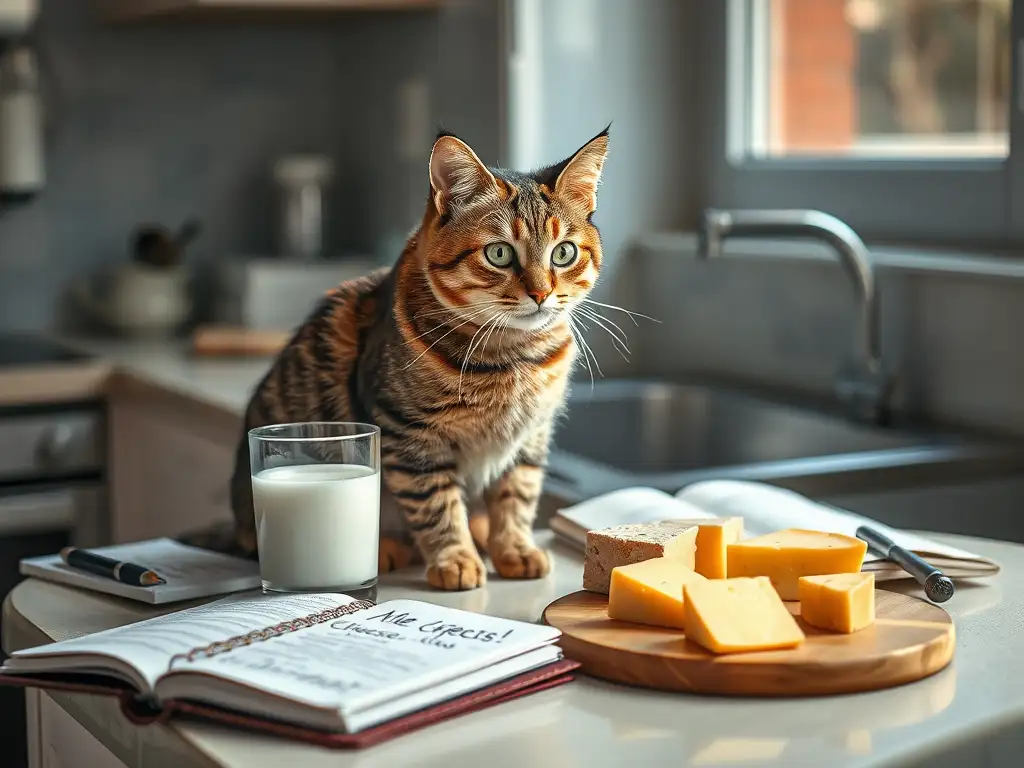
Now that we have looked over veterinary opinions pertaining to cats being fed cheese, let’s jump into the specifics-what kinds of cheeses and what may happen to those feline personalities.
Safe cheese options for occasional treats
While cheese should not be a part of a cat’s diet on a regular basis, some are safer than others as an occasional treat. Firm, plain cheeses like cheddar, Swiss, and Gouda are better choices because they contain less lactose. These hard cheeses can be fed in small amounts, the size of a dice, once or twice a week. Parmesan and feta are also suggested as possibilities, but still only in small amounts.
Cheese varieties to avoid
Soft cheeses are more dangerous to cats and must be avoided. These include:
- Cottage cheese
- Cream cheese
- Mozzarella
- Blue cheese
- Raw cheeses like brie
These varieties tend to contain larger amounts of lactose, which can be very problematic to cats’ digestive systems. String cheese, cheesecakes, and cheese crackers like Cheez-Its must also be avoided because they all contain soft cheese together with added preservatives and unhealthy additives.
Portion control and moderation
Portion control plays a very essential role when serving (Can Cats Eat Cheese) cheese to the cats. Assuming no more than once or twice a week, a safe serving size is close to a dice-sized square. After all, it is calorie-dense, which means that 1 ounce of cheddar cheese in a cat can be equivalent to a human having two and a half cheeseburgers.
Treats, such as cheese, must make up only 8 to 10 percent (Can Cats Eat Cheese) of a cat’s daily caloric intake to remain healthy. Otherwise, this excess calorie intake would lead to weight gain and, in turn, cause obesity among other health-related problems.
Signs of Cheese Intolerance in Cats
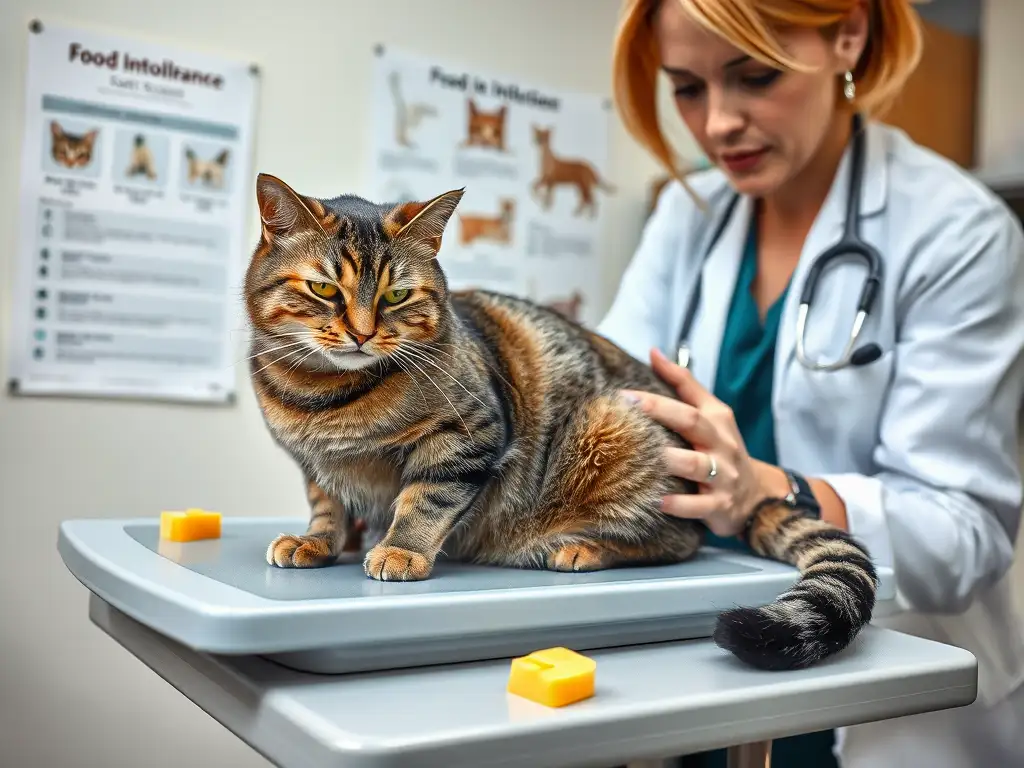
Since we have discussed types of cheese and their effects on the cat, let’s now explore the signs of cheese intolerance among our felines. While most cats are tolerant of some cheese, the adverse effects cannot be ruled out. Let us discuss the symptoms and consequences that cheese intolerance could bring to a cat.
Digestive symptoms to watch for
Cats with cheese intolerance may have numerous gastrointestinal problems. These include;
- Vomiting
- Diarrhea
- Flatulence
- Chronic digestive discomfort
These symptoms can be expected to be present shortly after cheese ingestion and then last for some hours or days.
Behavioral changes
Behavioral changes may also be present in cats suffering from cheese intolerance. Some of the signs to watch out for are:
- Over-grooming around the face and ears
- Scratching or licking of the skin more than usual
- Restlessness or irritability
- Lethargy or less activity
Long-term health consequences
If cheese intolerance is not treated, it can give rise to severe health conditions (Can Cats Eat Cheese), such as the following:
- Chronic inflammation and irritation of the skin
- Infection of the skin due to excessive scratching and rubbing
- Malnutrition due to long-term digestion problems
- Other food allergies related to other proteins
When to consult a veterinarian
If any of the following occur, you should consult your veterinarian.
- Recurring gastrointestinal symptoms that last longer than 24 hours
- Changes in behavior or appetite that are severe
- Evidence of skin inflammation or infection
- Possible allergic reactions, such as breathing difficulties or swelling
A veterinarian can conduct a comprehensive examination and may recommend an elimination diet to establish if cheese or some other dairy product is the cause of your cat’s symptoms. An elimination diet usually involves all removed potential allergens from a cat’s diet for 8-12 weeks and then a gradual reintroduction to identify the specific trigger.
Now that you are enlightened about how your (Can Cats Eat Cheese) cat will develop cheese intolerance, it becomes more important that the treats come from healthier and more nutritious sources. Next section: Several healthy and nourishing options you can give as alternatives to a variety of flavors.
Healthy Treat Alternatives for Cats

With that said, we now know how cheese intolerance in cats manifests. What’s more important is to understand healthier alternatives of treats that won’t risk your feline friend’s health. So, let’s get into the cat-friendly ones that veterinarians recommend.
Protein-rich options
Cats are obligate carnivores, thus requiring diets based on meats. When it comes to choosing treats, high-protein single-ingredient products are best. Freeze-dried minnows are an excellent option because they will provide a textural crunch that cats enjoy, and their nutritional profile is good. Other protein-rich products that incorporate real salmon, chicken, or tuna will have low caloric content, satisfying your cat’s idea of taste preference.
Commercial cat treats
When selecting commercial treats, look for products that feature meat as the main ingredient. A more affordable treat option is Wellness Kittles; these are delicious treats with additives that are not only beneficial to your cat’s health but also low in calorie count. Dental treats can both help maintain healthy teeth and please your cat’s desire to snack. However, be wary of wheat, artificial preservatives, or high-calorie content in such treats.
Homemade cat-friendly snacks
Although the reference content does not specify homemade treats, it is also important to note that some good quality dry cat foods can be considered as treats. Cats like them as snacks and are convenient for pet owners who need to have a quick treat solution.
Importance of a balanced diet
Remember that treats shouldn’t make up more than 10% of a cat’s daily calories (Can Cats Eat Cheese). For an average 10-pound cat, that is about 20-22 calories from the treats per day. It is wise to keep watch on calorie counts to avoid unnecessary weight gain in cats and stay healthy. Treats can be invaluable tools for reinforcement in training behaviors, but remember that they work best as supplements to provide a balanced, nutrient-specific diet for your feline friend.
When choosing your cat’s treats, consider her texture preferences – she may enjoy crunchier foods, while another might prefer a softer treat. Regardless, focus on natural ingredients and use treats in moderation so that her overall health improves as a result.
Conclusion
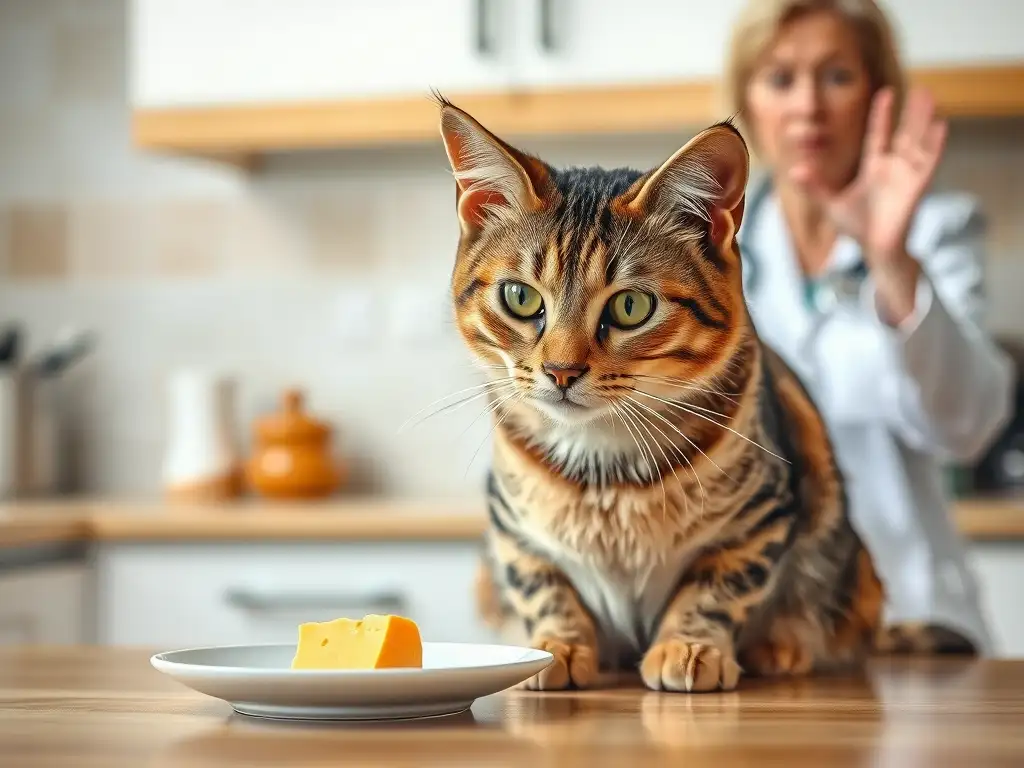
Feeding cheese to cats can be a complex issue based on veterinary opinions and research. Some cats might tolerate small amounts of certain cheeses, but most cats are lactose intolerant or allergic to dairy products. The important thing to know is that cheese should never be a staple in a cat’s diet and only be offered as an occasional treat, if at all. Hard cheeses, such as cheddar or Swiss, are safer, being smaller, dice-sized, and less likely to contain lactose.
As responsible feline owners, it is mandatory to take your feline buddy’s health needs and well-being (Can Cats Eat Cheese) first. Replace risky digestive issues and other health diseases with cat-safe treats. New food items brought to your domesticated cat may only be consumed under the care of your veterinary professional, or in case your pet happens to have conditions related to her health. A balanced and species-appropriate diet is bound to keep the feline-friendly for years on end.
YOU MAY ALSO LIKE
Top Pick
-

African Grey Parrot: A Smart, Loving, and Talkative Companion
July 22, 2025
-

5 Best Canister Filters for Crystal Clear Water in Your Pet Fish Tank
July 8, 2025
-

Is Pumpkin Good for Cats? Everything You Need to Know
July 5, 2025
-

Swim Bladder Treatment: Solutions for Aquarium Fish Health
July 3, 2025
-

7 Fascinating Betta Fish Facts Every Owner Should Know
July 2, 2025
